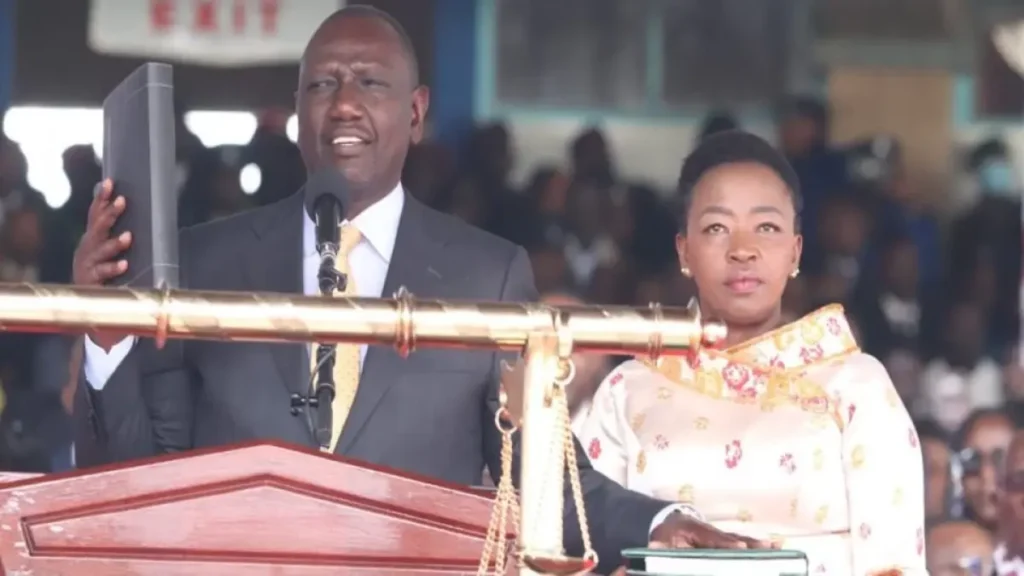President William Ruto’s administration has encountered significant headwinds just two years into his presidency. Catholic bishops and opposition leaders have become increasingly vocal about their concerns. Their criticism points to growing challenges in Kenya’s political landscape.
The mounting pressure comes amid widespread public dissatisfaction over economic policies. New tax measures, including the controversial housing levy, have sparked heated debates. These financial decisions have led to legal challenges and street protests.

President William Ruto taking his oath of office on September 13, 2022. Photo Courtesy
Recent months have seen some of the most severe political unrest in Kenya’s recent history. Public demonstrations have highlighted growing frustration with the government’s performance. The protests reflect deeper concerns about the direction of national leadership.
The relationship between Ruto and the Mt Kenya region has notably cooled. This is particularly significant given the region’s strong support during the 2022 elections. Political analysts see this as a crucial shift in Kenya’s political dynamics.
Several key allies who helped secure Ruto’s victory have lost their positions. These leadership changes occurred within the first two years of his administration. Such rapid turnover suggests internal tensions within the government structure.
However, the administration has made progress in some areas despite these challenges. Digital infrastructure has seen significant expansion across the country. The government has increased fiber optic cable coverage and established new digital hubs.
Healthcare initiatives have also shown positive developments under Ruto’s leadership. The administration has expanded community health programmes. These efforts aim to improve access to medical services nationwide.
Agricultural reforms have received attention from the government. Yet, results in this sector remain mixed. Farmers continue to face challenges despite new policy implementations.
International recognition has provided some bright spots for the administration. The Academy of Achievement awarded Ruto the Golden Plate Award. This honour acknowledged his efforts in leadership, transparency, and accountability.
The President has recently shown signs of self-reflection about his administration’s performance. He acknowledged the “bad politics” that marked his first two years in office. This admission came with promises to improve service delivery.
Public confidence in the government’s ability to fulfill campaign promises remains shaky. The cost of living continues to burden many Kenyan households. Citizens express growing concern about economic hardships.
The Catholic Church’s criticism carries particular weight in Kenya’s political discourse. Religious leaders have traditionally played a significant role in national dialogue. Their current stance signals broader societal concerns.
Opposition leaders have seized upon these challenges to question government policies. They point to unfulfilled promises and economic difficulties. Their criticism has found resonance with sections of the public.
The Mt Kenya region’s changing attitude presents a significant political challenge. This shift could impact future electoral calculations. Political observers note this as a crucial development for the 2027 elections.
Looking ahead, Ruto’s administration faces the task of rebuilding public trust. The remaining years of his term will be crucial. His ability to address current challenges may define his presidency’s legacy.
The President’s team emphasizes their commitment to development projects. They point to infrastructure improvements and digital innovations. These achievements, however, compete with public attention to economic challenges.
Economic experts suggest that the next few months will be crucial. The government’s handling of cost-of-living issues will be closely watched. Public reaction to new policies could shape political dynamics.
Recent statements from the President indicate a possible shift in approach. He has promised better focus on delivering election promises. This commitment comes amid growing pressure for tangible results.